
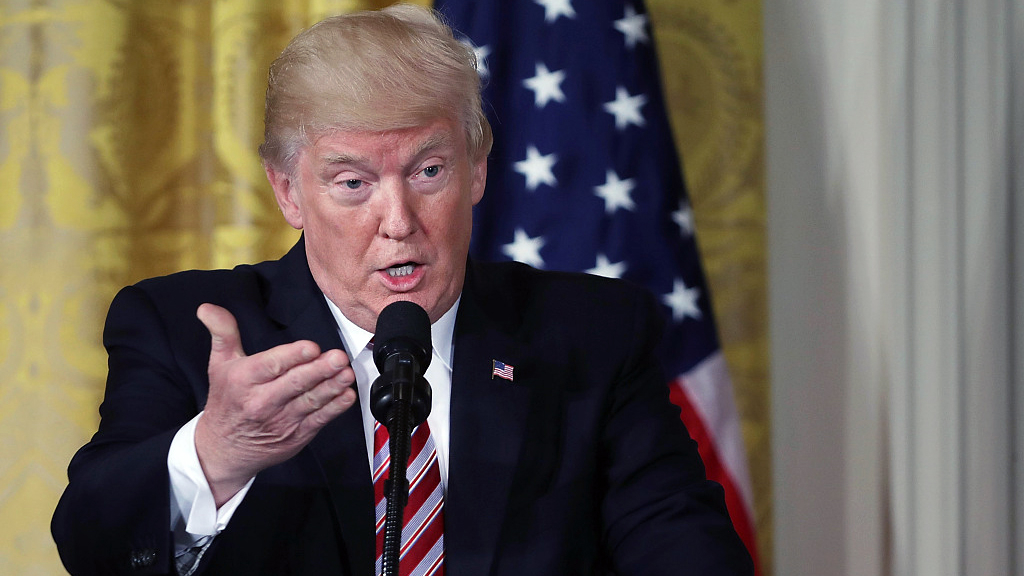
Since he has been in power, U.S. President Donald Trump has promised to bring the "Deal of the Century" to end the Israeli-Palestinian conflicts. However, after postponing and postponing, we still don't know what's really behind the curtain.
Jared Kushner, Trump's senior adviser and son-in-law, has laid the groundwork for the release of the proposals that he said would be announced following Ramadan sometime in June.
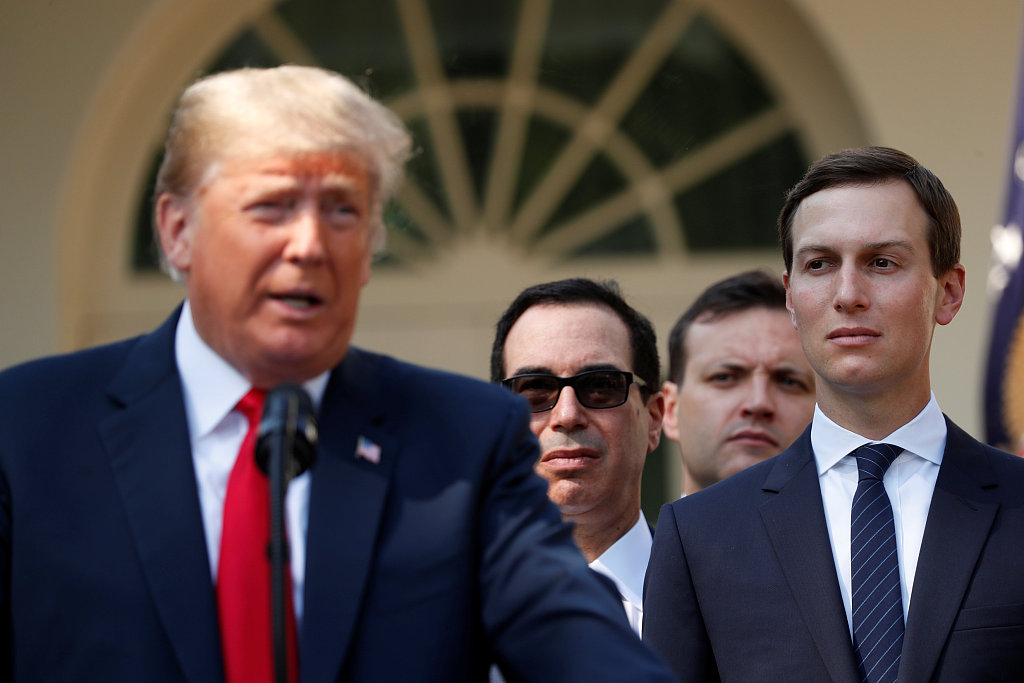
White House senior adviser Jared Kushner (R) listens as U.S. President Donald Trump delivers remarks on the United States-Mexico-Canada Agreement (USMCA) during a news conference in the Rose Garden of the White House in Washington, October 1, 2018.
As a new general election in Israel is scheduled for September, experts said the announcement will be further postponed.
But the Trump administration said the economic portion of the "Deal of the Century" will be unveiled during the upcoming U.S.-led economic conference in Bahrain from June 25 to June 26.
U.S. as a mediator
Trump is definitely not the first U.S. president with ambitions of ending the decades-long conflicts. The U.S. has been acting as the main mediator during the peace process between two sides since the Oslo summit in 1993.
Bill Clinton, George W. Bush and Barack Obama have all played roles in solving the issues. Although some talks have come close to agreements, summits and negotiations have all failed.
The Palestinians accepted American mediation because they believed the U.S. could pressure Israel although they never regarded Washington as neutral.
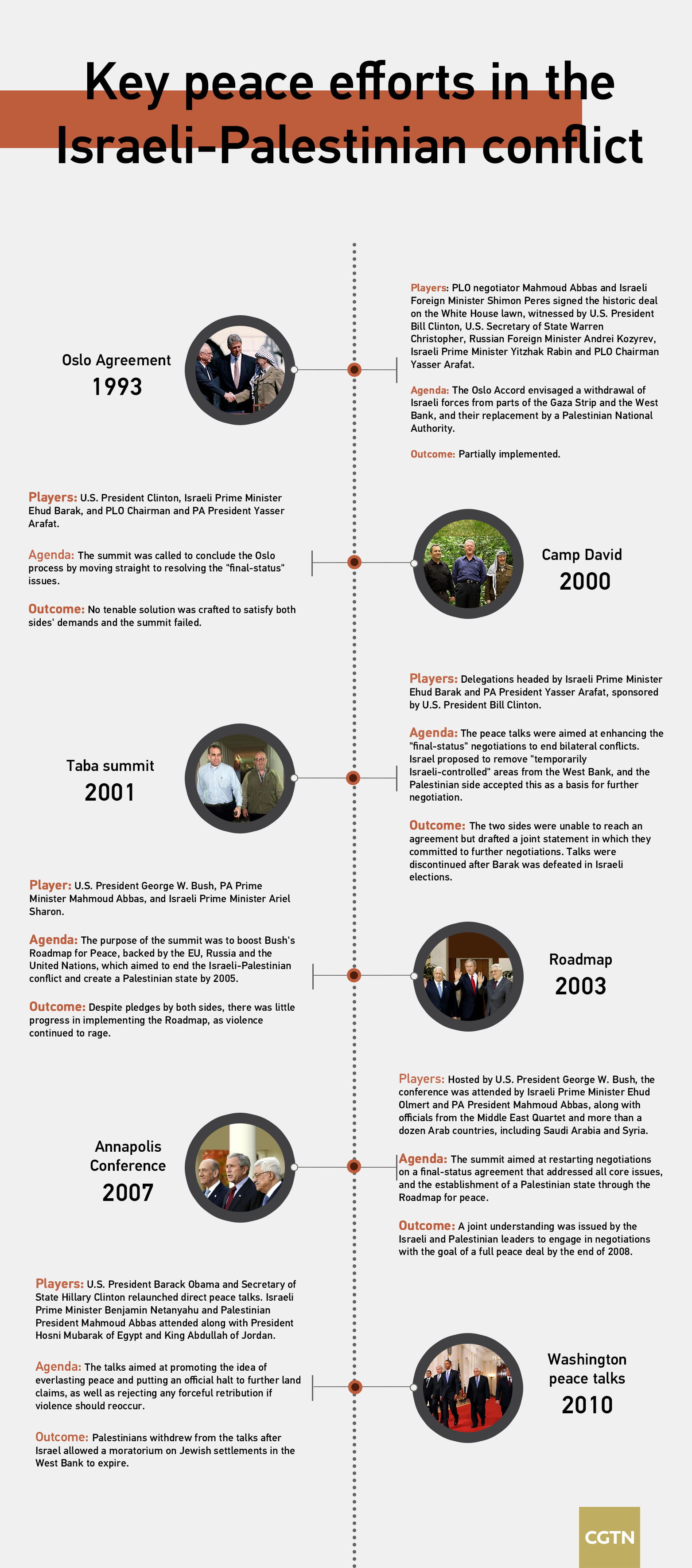
What's the deal about?
Based on several leaks, the core of the deal could be offering Palestine money needed for improving the humanitarian situation in the strip in return for Palestinians abandoning east Jerusalem as the capital of their future state and their right of return, as enshrined in international law.
For Israel, it will have complete control over the Old City and control the whole Jordan Valley as well only withdraw from several villages east, and north of Jerusalem.
CGTN recently talked with two experts respectively from Palestine and the U.S. asking their opinions on the "Deal of the Century."
Although little information has been leaked so far, Erik Bordenkircher, a research fellow at the University of California, Los Angeles believes Trump's proposals won't deviate too much from the previous administration.
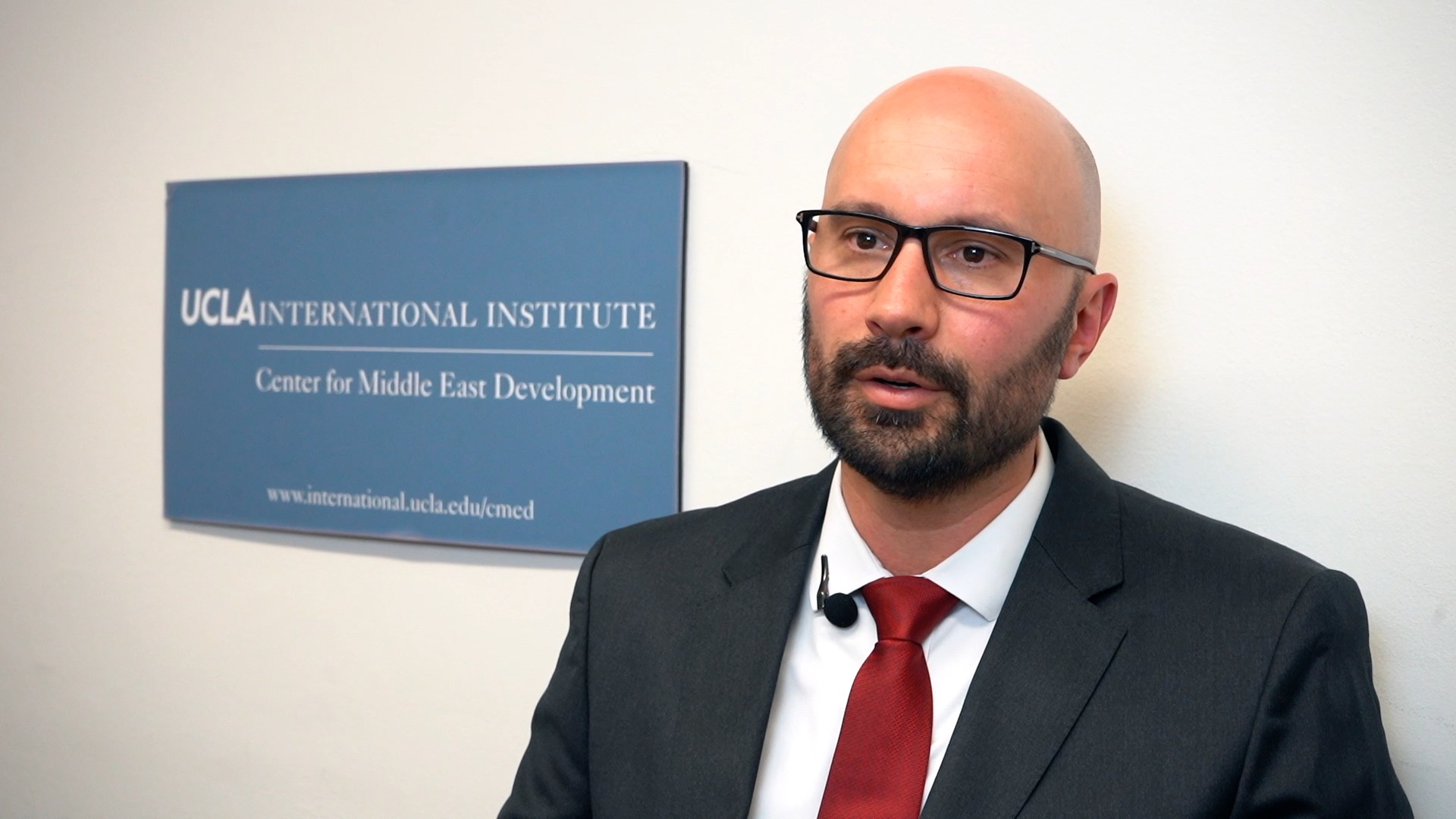
"I think we need to remember that, prior to being the president of the United States, Donald Trump was a real estate developer and the host of a reality show."
He stressed that Trump only wanted to hype up these ideas.
Dr. Haidar Eid, professor of cultural studies at Al-Aqsa University in Gaza, said the deal in very simple terms will aim to "liquidate the Palestinian cause all together" in order to guarantee Israel's security and safety in the Middle East.
A deal difficult to give birth
Both Eid and Bordenkircher agreed that the deal won't be announced until after September's Israeli election.
Bordenkircher also pointed out as the U.S. wants to have all of its Arab allies on board, securing their support for the deal could be another reason for the delay.
He said Israeli-Palestinian issues can also affect neighboring countries like Lebanon, Syria, Jordan and Egypt.
Giving Jordan as an example, Bordenkircher said the deal may have negative repercussions on the country.
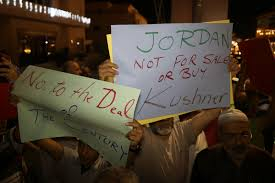
Jordanian protesters take part in a sit-in against Senior White House Adviser Jared Kushner's visit to Jordan, near the U.S. Embassy in Amman, Jordan, May 28, 2019. /Reuters Photo
Rumors that Trump's "Deal of the Century" could include a potential confederation between Jordan and Palestinian territories, resulted in fear among Jordanians.
Massive protests against the proposals have been launched and Jordan’s King Abdullah last week reacted angrily to any suggestion that he might accept a U.S. deal at his countrymen's expense.
Eid shared similar views saying the deal required the support of Arab countries but he doesn't believe people from Morocco to Qatar to Kuwait will favor it.
Dynamics on the ground
The expert from Gaza noticed that no matter the delayed announcement of the deal, Trump's administration has already started to implement it with the first step U.S. recognition of Jerusalem as the capital of Israel and the second step was to stop funding the United Nations Relief and Work Agency (UNRWA) which assists Palestinians.
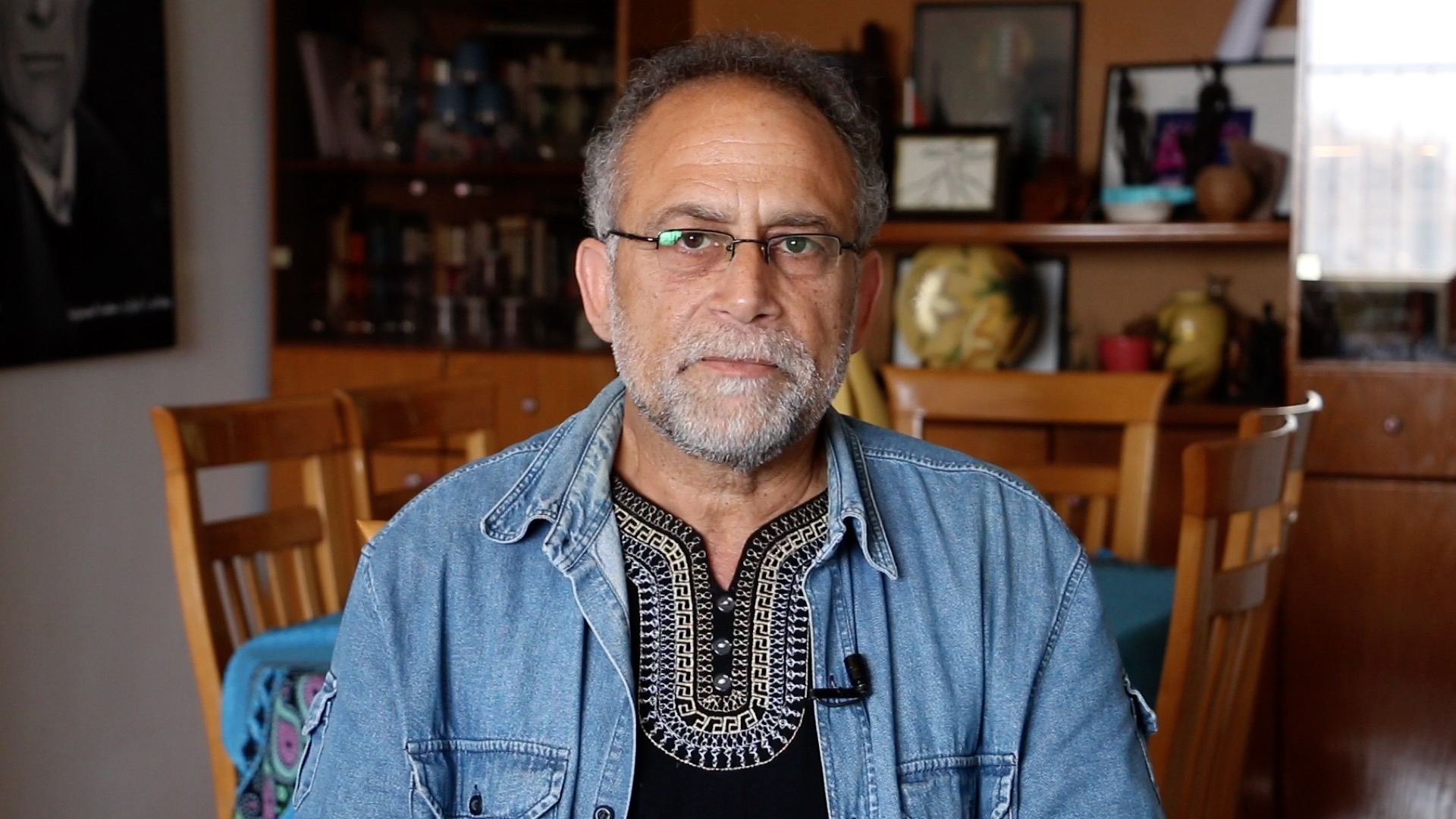
Eid added that the third phase began last week, with the American ambassador in Tel Aviv claiming in an interview with the New York Times that Israel has "the right’ to annex some parts of the West Bank."
"That is to say, to annex the parts that have been already annexed and used as exclusively Jewish settlements," Eid pointed out.
However, he believed both civil society and political forces in Palestine will reject the deal.

A Palestinian woman holds a flag during clashes at the border fence between Israel and Gaza in the southern Gaza Strip on May 14, 2019. /VCG Photo
Stressing that international law is on Palestinians' side, Eid said Israel is so isolated from the Arab world and international community that the deal is doomed to fail.
Agreeing with Eid, Bordenkircher also believes the Palestinian side presents a bigger problem.
"They (Palestine) are divided between the Palestinian Authority and the West Bank, and Hamas and Gaza. And those two groups have to unite and come to the table together or have someone represent them and come to the table, where their different opinions have been figured out."
Meanwhile, the UCLA professor also said the Israeli government is always very conservative and unwilling to make any major concessions towards the Palestinians, and that also led to past negotiations' failure.

Copyright © 2018 CGTN. Beijing ICP prepared NO.16065310-3
Copyright © 2018 CGTN. Beijing ICP prepared NO.16065310-3